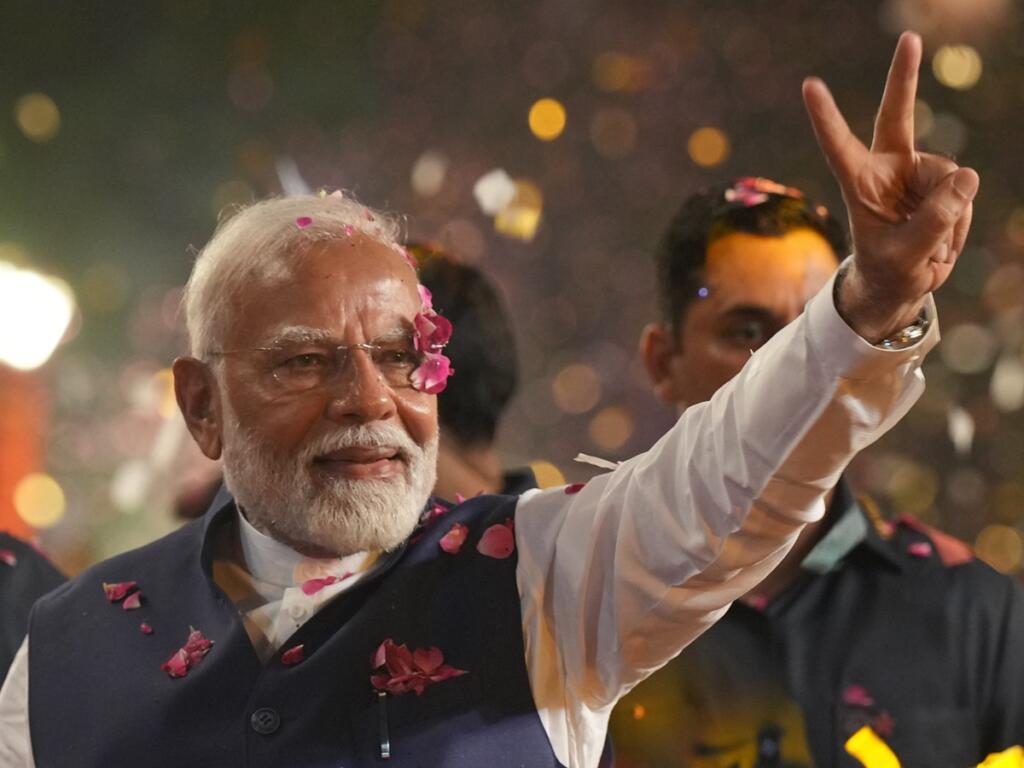In the aftermath of Narendra Modi securing his third term as India’s Prime Minister, Western media has revived its tradition of critiquing Indian politics. Despite the significance of this historic election in Indian democracy, Western media’s portrayal of Modi’s popularity and political landscape has been skewed.
Critical Outlook on Modi’s Victory
The outcome of the 2024 Lok Sabha elections garnered global attention. However, Western media chose to cast Modi’s victory in a negative light. For instance, The New York Times suggested that Modi’s perceived invincibility had waned. Similarly, The Washington Post characterized the results as an unexpected rejection of Modi’s leadership.
Undermining Modi’s Achievements
Western media outlets such as Deutsche Welle and The Telegraph depicted the election not as a triumph for Modi but as a setback. This portrayal overlooks the intricate dynamics of Indian democracy and the electorate’s decision-making process.
Questioning Modi’s Tenure
This doubt, combined with Bloomberg’s assertion of Modi’s rejection in southern India, constructs a narrative that diminishes the significance of Modi’s victory. The collective skepticism from these reputable sources undermines Modi’s accomplishments and casts doubt on his ability to effectively govern. This narrative overlooks the broader context of Modi’s widespread support and fails to acknowledge the complexities of Indian politics, ultimately painting an incomplete and biased picture of the electoral landscape post-Modi’s victory.
Bias Revealed Towards Modi
Following Narendra Modi’s triumph, Western media’s evident bias seeks to downplay his achievements and oversimplify the intricate landscape of Indian politics. By emphasizing flaws such as France24’s focus on the electronic voting system’s alleged lack of confidence, these narratives perpetuate a skewed portrayal. Such oversights not only undermine Modi’s accomplishments but also neglect the diverse factors influencing Indian democracy. This biased reporting impedes a comprehensive understanding of Modi’s victory and its broader implications on the global stage.
Disrespecting Indian Democracy
This wave of criticism serves as a stark reminder of the bias prevailing within Western media, tarnishing Modi’s achievements and the widespread support he garners from the Indian electorate. Such disregard for the voters’ decisions not only reflects poorly on Indian democracy but also casts doubt on the integrity and fairness of Western media. It underscores the need for a more balanced and respectful approach in reporting on Indian politics, one that acknowledges the complexities of the democratic process and respects the choices made by millions of Indian citizens.
Respect for Democratic Rights
Modi’s victory is a significant milestone in Indian democracy, symbolizing the will of the people. While it may not have reached the lofty expectations set by some, it remains a testament to the democratic process. Western journalism should acknowledge the diverse voices and choices of the Indian electorate, respecting the complexities of their decision-making. Dismissing Modi’s victory without recognizing the democratic exercise of millions of Indian voters would undermine the principles of democracy itself. Therefore, it is imperative for Western media to refrain from disparaging narratives and instead engage in fair, unbiased reporting that respects the essence of democratic values.
Need for Impartial Reporting
To truly understand Indian politics and Modi’s popularity, Western media must shed their biases. It is imperative to grasp the complexities of Indian democracy and respect the decisions made by Indian voters. Any attempts to undermine India’s democratic process are not only unwarranted but also contradict global democratic values.
In conclusion, Western media’s biased coverage of victory of Modi highlights a troubling trend in international journalism. By overlooking Modi’s achievements and the Indian electorate’s democratic rights, Western media outlets risk perpetuating narratives that undermine the credibility of Indian democracy. Moving forward, it is essential for Western journalists to adopt a more impartial approach in their reporting, acknowledging the complexities of Indian politics and respecting the choices made by Indian voters. Only then can a more nuanced understanding of Modi’s victory and its implications be achieved on the global stage.
ALSO READ: Advocates of Rafah from India are now silent on the Jammu Terror Attack
